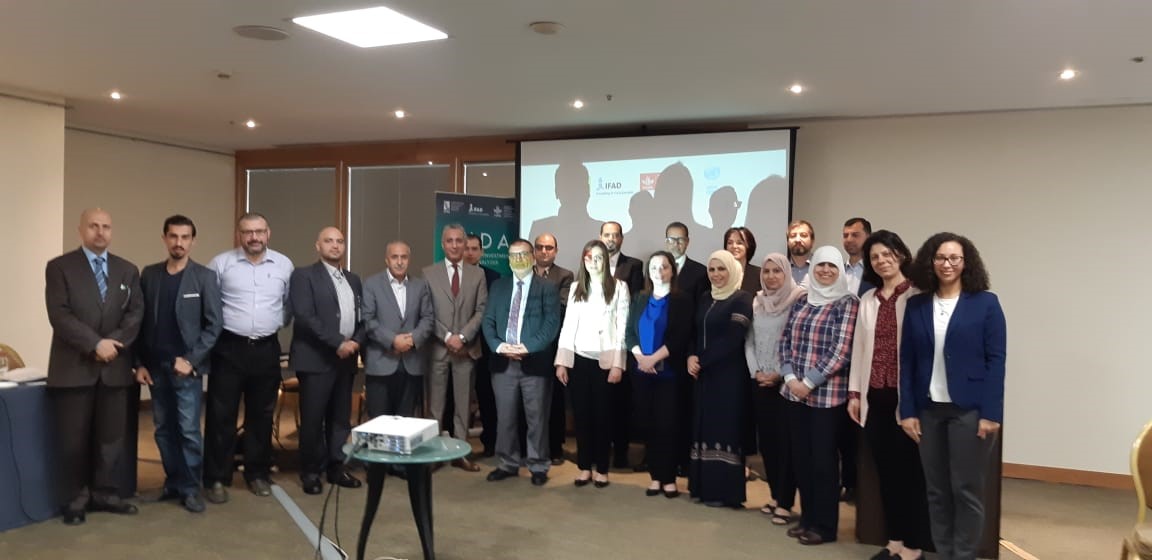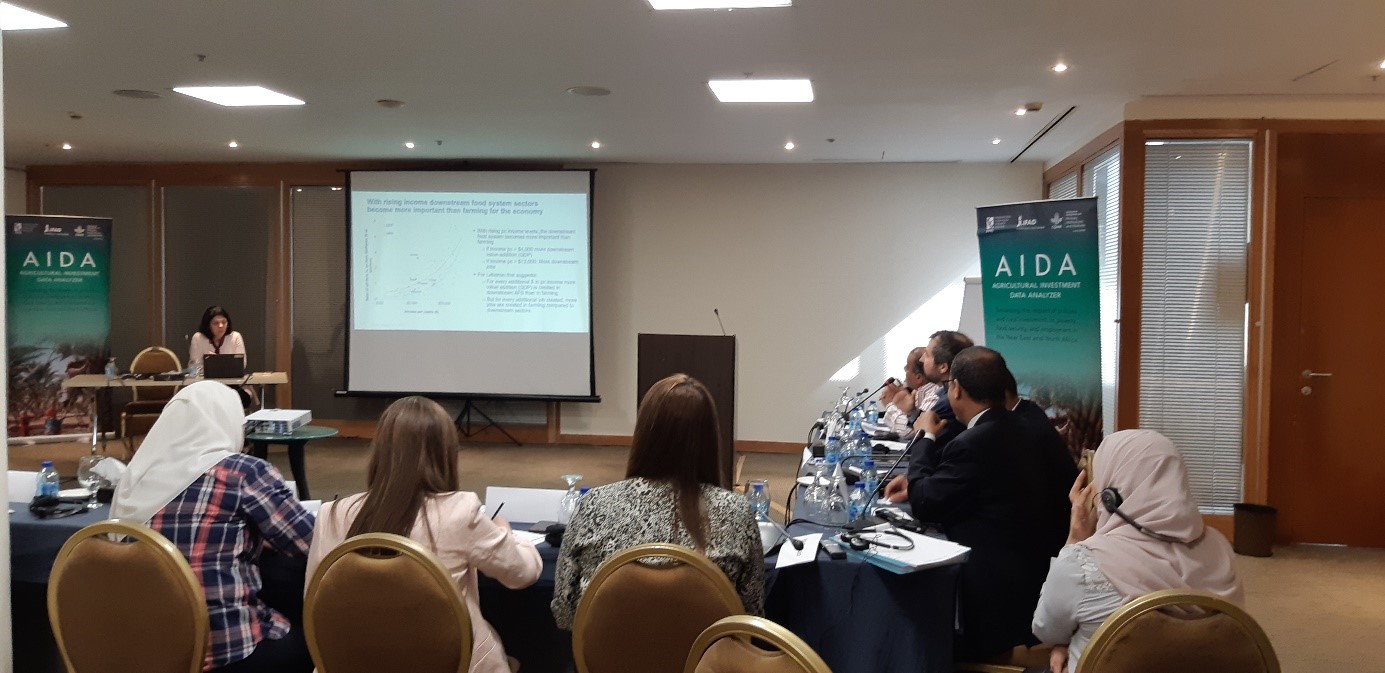Dalia ElSabbagh, Mariam Raouf and Nathalie Grand
October 15, 2019
In order to design effective policies and investment plans, decision makers need powerful analytical tools. Ideally, such tools assess the costs and benefits of interventions against a range of relevant development outcomes such as the expected impact on economic growth, jobs and poverty. In addition, such tools should be easy to use and fast to deploy in order to feed directly into the dynamic policy and decision-making process. Against this background, this workshop presented two innovative tools: the Agriculture Investment Data Analyzer (AIDA) that is currently developed by the International Food Policy Research Institute (IFPRI) with support from the International Fund for Agricultural Development (IFAD) and the CGIAR Policies, Institutions and Markets program (PIM) and the regional integration assessment system of indexes developed by United Nations Economic and Social Commission for Western Asia (UN-ESCWA).
The main goal of the AIDA tool is to help prioritizing investments in the field of agriculture and agro-processing in several countries of the Near East and North Africa (NENA), including Jordan. After the launch of the AIDA project in Jordan that took place February 14, 2018, the objective of this technical workshop was the validation of the key underling database for AIDA – the new social accounting matrix (SAM) for Jordan.

Technical Policy Analysis Workshop, Group Photo, Amman, October 15th, 2019.
The technical workshop started with opening remarks by IFPRI’s Country Program Manager Clemens Breisinger, followed by the keynote speakers Mr. Zaher Al-Qatarneh, the Deputy of the Jordanian Ministry of Industry, Trade and Supply and Mr. Mokhtar El-Hacene, Director of Economic Development and Integration Division (EDID) at UN-ESCWA. The 21 participants represented many Jordanian entities, including: Department of Statistics (DOS), Ministry of Agriculture, Ministry of Planning, Jordan Investment Committee, Central Bank of Jordan, Ministry of Trade, and the Jordanian Hashemite Fund for Human Development.
In the first part of the workshop, Mariam Raouf, Research Associate at IFPRI, presented the key features of the draft SAM in great detail that has been constructed by the IFPRI team. This new SAM will be the main database for AIDA, but can also be used for other economic analysis such as regional trade integration. In addition to walking the participants through the SAM construction process, IFPRI’s team also discussed with the participants options for closing the remaining data gaps and recent updates on the economic structure of the Jordanian economy. In this regard, the participants highlighted for example the construction of a new economic census for the year 2017, which is expected to become available in 2020. Furthermore, participants discussed critical issues and assumptions to overcome some of the existing data challenges, for example the underrepresentation of foreign workers in the formal surveys, the difficulties in obtaining detailed household expenditure patterns, the savings rate, as well as up to date information on indirect taxes, subsidies and the new cash transfer program.
In the second part of the workshop, Nathalie Grand, First Economic Affairs Officer at the UN-ESCWA, discussed policy options to increase regional trade integration seen as a key priority by many developing countries towards achieving economic diversification, industrialization and structural transformation that are critical steps to enable sustainable growth and development. However, for the regional integration process to be successful, it requires that countries can accomplish certain levels of performance in different dimensions of integration. To such end, Nathalie Grand presented UN-ESCWA’s regional integration assessment system of indexes that is being amended in the context of a Development Account project which aims at strengthening the capacity of selected developing countries, among which Jordan, to measure, monitor and improve their performance in regional integration within the Africa, Western Asia, and the rest of Asia-Pacific regions.
Nathalie Grand provided participants detailed information about the steps of the project which entails: 1) The provision of a robust regional integration index to be freely and easily accessible to all stakeholders; 2) Capacity building and technical assistance offered to Jordan on the use of the information generated through the index for better policy making and analysis with a view to improving their own performance in regional integration, with strong emphasis on trade integration. Discussion focusing on the actual structure of UN-ESCWA Arab Economic Integration Monitoring and Evaluation System of Indexes and Scoreboards allowed familiarizing stakeholders with its functioning, and future developments and identifying best ways to collaborate to further improve its efficacy as a tool for evidence-based policy-analysis/making. Were also discussed, the ongoing development of a User guide for the monitoring system, of an online web platform and the drafting of action plans including a roadmap to guide implementation to address trade integration gaps.
The workshop resulted in the mutual understanding of all participants about the importance of building sound databases and using them for evidence-based policy analysis. The next workshop in 2020 is expected to launch the AIDA tool in Jordan and further collaborations are expected to continue building capacity building for local partners.

Interactive discussion among the participants on the SAM construction process, Amman, October 15th, 2019.
